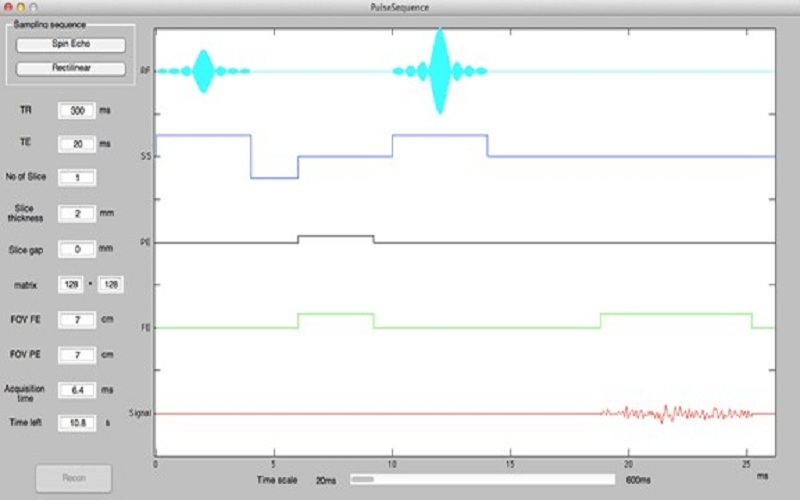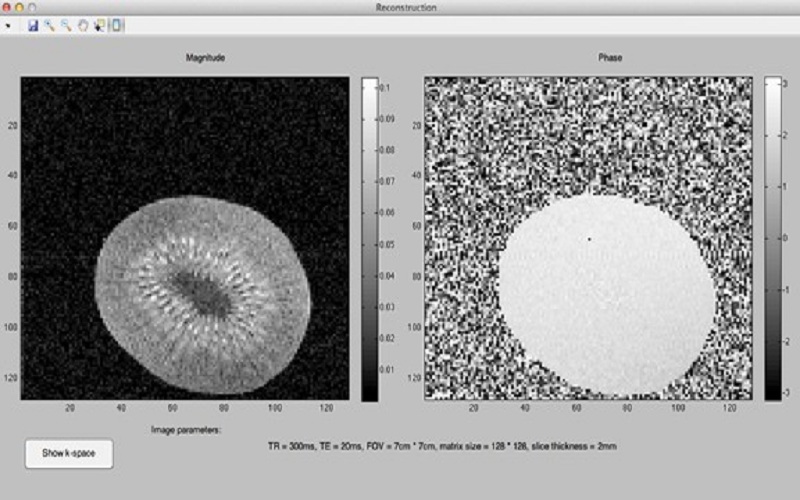MRI Simulator
Introduction
This interactive computer-lab projects is designed to enable students to learn several fundamental concepts and skills in magnetic resonance imaging (MRI): (1) basic spin-echo and gradient-echo data acquisition; (2) relationship between the physical parameters (for example, gradient strength and pulse width, RF bandwidth) and the image parameters (for example, field-of-view, slice thickness); (3) basic k-space signal processing and image reconstruction from both Cartesian k-space data and radial k-space data . All labs are built using real raw datasets acquired on our research MRI scanner.

Fig 1. PulseSequence Panel

Fig 2. Reconstruction Panel
There labs are organized in four miniprojects, each for a 45-minute sessions:
(1) Lab 1: Get familiar with Matlab: this lab will prepare you with basic Matlab operations, reading, manipulating, and displaying images.
(2) Lab 2: MRI data acquisition through spin-echo sequence and gradient-echo sequence: visualization of the RF and gradient signals that are used to acquire the k-space data; learn to calculate the hardware parameters for given imaging parameters.
(3) Lab 3: MRI image reconstruction: learn to perform DC correction and suppress noise using linear shift-invariant filters (Demi, Gaussian and Hamming). Observe the effects of different imaging parameters on the image acquired;
 |
Dr. Raffaella Righetti
|
Dr. Raffaella Righetti 